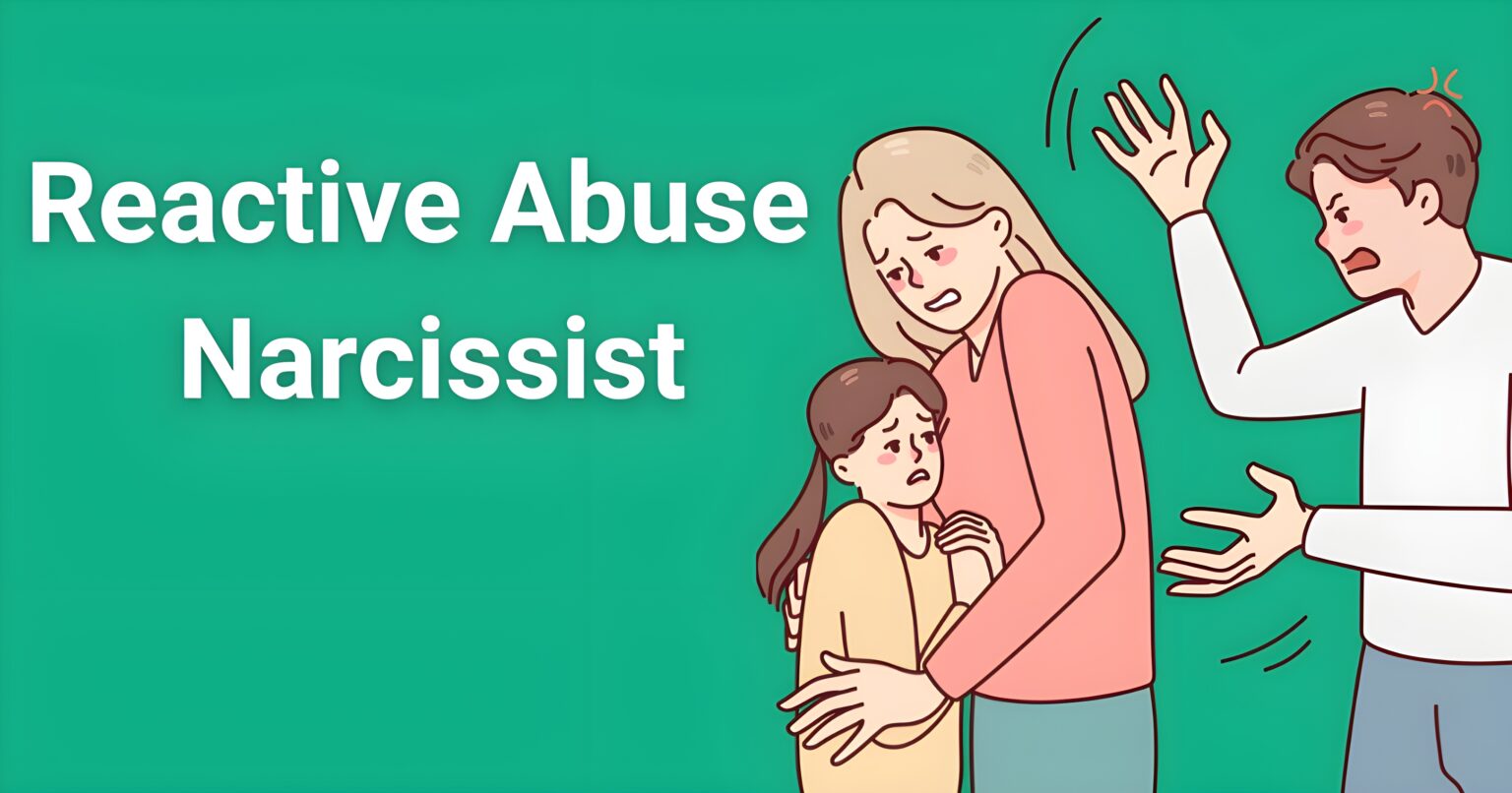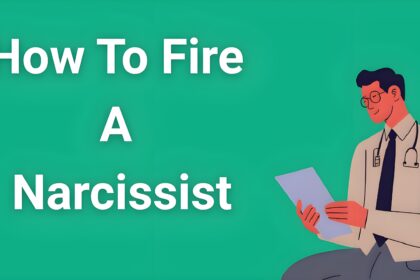Reactive Abuse Narcissist? Top 5 Triggers They Use On You – if you’re searching for this, you’re probably drowning in guilt and confusion about the moment you finally snapped, the day you lost your cool, or the time you said things you never thought you’d say. After working with thousands of survivors through NarcissismExposed.com as a Certified Narcissistic Abuse Specialist, I can tell you that what you experienced wasn’t a character flaw or proof that you’re “just as bad as them” – it was a calculated psychological setup designed to make you the villain in your own story.
- Understanding the Psychology Behind Reactive Abuse Manipulation
- Reactive Abuse Narcissist? Top 5 Triggers They Use On You: The Calculated Tactics
- The Aftermath: How Reactive Abuse Narcissist Tactics Damage Your Self-Perception
- Breaking Free: Healing from Reactive Abuse Manipulation
- Protection Strategies: Preventing Future Reactive Abuse Scenarios
- Key Takeaways: Understanding Reactive Abuse Narcissist Manipulation
- Frequently Asked Questions
The devastating truth is that reactive abuse isn’t abuse at all – it’s a survival response to sustained psychological torture that narcissists deliberately provoke to use as evidence of your “instability” and their victimhood. Understanding these trigger tactics isn’t just validating – it’s essential for your healing and protection from future manipulation.
What makes reactive abuse so insidious is how it weaponizes your own reactions against you. The narcissist systematically pushes you past your breaking point, then uses your natural human response to paint themselves as the victim and you as the aggressor. This calculated manipulation leaves survivors questioning their own sanity and carrying crushing guilt about their “abusive” behavior.
The truth you need to hear: You weren’t the abuser. You were the victim who finally couldn’t take anymore. Understanding the specific triggers narcissists use to provoke reactive abuse will help you release the guilt and recognize these patterns if you ever encounter them again.
Understanding the Psychology Behind Reactive Abuse Manipulation
Before we examine the specific triggers in “Reactive Abuse Narcissist? Top 5 Triggers They Use On You,” it’s crucial to understand the psychological mechanisms that make this manipulation so effective and why survivors fall into these carefully laid traps.
Reactive abuse occurs when someone who has been subjected to prolonged psychological manipulation finally reacts with anger, defensiveness, or emotional intensity. The narcissist then uses this reaction as “proof” that their victim is the real abuser, effectively flipping the script and positioning themselves as the innocent victim.
The Neurological Impact of Sustained Abuse
Research from Harvard Medical School shows that prolonged psychological abuse literally changes brain structure, particularly in areas responsible for emotional regulation and stress response. When you’ve been subjected to months or years of manipulation, gaslighting, and emotional abuse, your nervous system becomes hypervigilant and your capacity for measured responses becomes compromised.
The neurological changes include:
- Chronic hypervigilance that makes you more reactive to threats
- Depleted emotional regulation resources from constant stress
- Heightened amygdala response that triggers fight-or-flight reactions
- Reduced prefrontal cortex function affecting impulse control
- Trauma bonding that creates intense emotional responses to the abuser’s behavior
This means that when narcissists deploy their trigger tactics, they’re targeting a nervous system that’s already compromised by their previous abuse. Your “overreaction” isn’t a character flaw – it’s a predictable response to sustained psychological warfare.
The Strategic Nature of Reactive Abuse
What makes reactive abuse particularly cruel is that it’s not accidental – it’s a calculated strategy narcissists use to maintain control and avoid accountability for their own behavior. Understanding this strategic element is crucial for releasing the guilt and shame that survivors carry about their reactions.
The reactive abuse strategy serves multiple purposes:
- Provides evidence that the narcissist can use to claim they’re the victim
- Deflects attention from the narcissist’s own abusive behavior
- Creates confusion about who is really the abuser in the relationship
- Generates ammunition for future manipulation and guilt trips
- Maintains the narcissist’s superior position by making their victim appear unstable
According to research published in the Journal of Emotional Abuse, this pattern of provocation followed by victim-blaming is one of the most psychologically damaging forms of manipulation because it attacks the victim’s sense of reality and moral identity.
Reactive Abuse Narcissist? Top 5 Triggers They Use On You: The Calculated Tactics
Now let’s examine the specific manipulation tactics that narcissists use to provoke reactive abuse. Understanding these triggers helps validate your experience and provides protection against future manipulation.
Trigger #1: The Relentless Boundary Violation Campaign
The first major trigger in “Reactive Abuse Narcissist? Top 5 Triggers They Use On You” involves the systematic violation of your boundaries until you finally explode in frustration. Narcissists understand that boundary violations create cumulative stress that eventually overwhelms your capacity for measured responses.
This trigger manifests as:
- Repeatedly ignoring your clearly stated boundaries
- Escalating violations when you try to enforce consequences
- Using your previous tolerance as justification for further violations
- Dismissing your boundary attempts as “overreacting” or “being too sensitive”
- Creating situations where enforcing boundaries makes you look unreasonable
The psychological impact: When narcissists consistently violate your boundaries, they create a state of chronic stress and helplessness. Your nervous system recognizes the threat but feels powerless to stop it through normal means. Eventually, this leads to an explosive reaction that the narcissist can point to as evidence of your “abusive” nature.
One survivor shared: “He would go through my phone, show up at my work uninvited, and make plans without consulting me. Every time I tried to set a boundary, he’d push it further. When I finally screamed at him to stop invading my privacy, he told everyone I was ‘verbally abusive’ and ‘controlling.'”
The setup: The narcissist creates a no-win situation where you either accept boundary violations (which escalate) or enforce boundaries (which triggers their victim narrative). Your eventual reaction becomes their evidence that you’re the problem.
Trigger #2: The Gaslighting Accumulation Attack
The second critical trigger involves sustained gaslighting that builds up over time until you finally react with desperate attempts to assert your reality. This technique is particularly insidious because it targets your sense of sanity and truth.
Gaslighting accumulation includes:
- Consistently denying things they said or did
- Rewriting history to make you doubt your memory
- Claiming you’re “too sensitive” or “imagining things”
- Involving others to question your version of events
- Using your emotional reactions as proof you’re “unstable”
The psychological warfare: Gaslighting creates a sense of reality distortion that is deeply traumatic. When someone consistently denies your reality, your brain goes into hypervigilance mode, desperately trying to maintain its grip on truth. The accumulation of these reality attacks eventually overwhelms your system.
The breaking point typically occurs when:
- You finally provide evidence of their lies or manipulation
- You desperately try to make them acknowledge your reality
- You become emotional while defending your perception of events
- You raise your voice or become animated while explaining what happened
- You show intense frustration with their continued denials
The manipulation: The narcissist uses your intense emotional response to defending your reality as evidence that you’re “out of control” or “mentally unstable.” They completely ignore the fact that your reaction was a normal response to sustained reality distortion.
Trigger #3: The Emotional Withholding and Sudden Demand Strategy
The third major trigger in “Reactive Abuse Narcissist? Top 5 Triggers They Use On You” involves withholding emotional connection, support, or affection for extended periods, then making sudden demands when you’re emotionally depleted. This creates a perfect storm for reactive responses.
This strategy includes:
- Giving you the silent treatment for days or weeks
- Withholding physical affection or emotional support
- Being emotionally unavailable during your difficulties
- Suddenly demanding attention, sex, or emotional labor when you’re depleted
- Acting hurt or offended when you can’t immediately provide what they want
The psychological impact: Emotional withholding creates a state of emotional starvation that compromises your ability to respond thoughtfully to demands. When someone has been emotionally unavailable and then suddenly expects you to meet their needs, your depleted system often responds with irritation or anger.
Common reactive responses:
- Snapping when they suddenly want attention after ignoring you
- Becoming angry when they expect immediate emotional availability
- Reacting with frustration to their demands after periods of withholding
- Expressing hurt or anger about their inconsistent availability
- Becoming emotional when they act surprised by your reaction
The setup: The narcissist creates emotional depletion through withholding, then acts shocked and hurt when you can’t immediately provide what they want. Your natural reaction to this inconsistency becomes evidence of your “selfishness” or “abusive nature.”
Trigger #4: The Public Humiliation and Private Confrontation Trap
The fourth trigger involves publicly humiliating or undermining you, then acting shocked when you confront them privately about their behavior. This tactic is particularly effective because it isolates the reactive behavior from its context.
Public humiliation tactics include:
- Making jokes at your expense in front of others
- Sharing private information or embarrassing stories
- Undermining your opinions or contributions in group settings
- Flirting with others or making you feel invisible
- Dismissing your achievements or making you look foolish
The private confrontation trap: When you later confront them about their public behavior, they focus entirely on your emotional response rather than their actions. They may claim you’re “overreacting,” “being too sensitive,” or “ruining everyone’s good time.”
Why this trigger is so effective:
- The humiliation creates legitimate hurt and anger
- The public setting prevents immediate response
- The private confrontation isolates your reaction from its cause
- Others didn’t witness the full context of your emotional response
- The narcissist can claim they were “just joking” or “didn’t mean anything by it”
The manipulation: Your natural hurt and anger about being publicly humiliated becomes evidence that you’re “too sensitive” or “can’t take a joke.” The narcissist completely ignores the appropriateness of your emotional response to their inappropriate behavior.
Trigger #5: The Crisis Creation and Blame Deflection Method
The fifth and often most damaging trigger in “Reactive Abuse Narcissist? Top 5 Triggers They Use On You” involves creating chaos or crises, then blaming you for the consequences or your reaction to their manufactured drama. This technique is particularly cruel because it weaponizes your natural stress responses.
Crisis creation tactics include:
- Starting arguments before important events or milestones
- Creating financial problems through irresponsible behavior
- Threatening to leave or end the relationship during vulnerable moments
- Manufacturing emergencies that require your immediate attention
- Sabotaging your work, relationships, or personal goals
The blame deflection component: After creating chaos, the narcissist focuses on your reaction to their behavior rather than their role in creating the situation. They may claim you’re “overreacting,” “making things worse,” or “being dramatic.”
Why this trigger is so effective:
- Crisis naturally triggers stress responses and emotional reactions
- The chaos they create makes it difficult to respond calmly
- Your reaction becomes the focus rather than their behavior
- The manufactured urgency prevents thoughtful responses
- Your stress response can look disproportionate to observers who didn’t witness the full context
The psychological damage: This trigger is particularly harmful because it makes you doubt your own emotional responses to genuinely stressful situations. You begin to question whether your reactions are appropriate, even when they’re completely normal responses to manufactured chaos.
The Aftermath: How Reactive Abuse Narcissist Tactics Damage Your Self-Perception
Understanding “Reactive Abuse Narcissist? Top 5 Triggers They Use On You” isn’t just about recognizing manipulation – it’s about healing from the psychological damage these tactics create. The aftermath of reactive abuse often includes profound self-doubt and guilt that can persist long after the relationship ends.
The Guilt and Shame Spiral
One of the most damaging aspects of reactive abuse is how it creates lasting guilt and shame about your behavior. Because you reacted with anger, defensiveness, or emotional intensity, you may believe you were “just as bad” as your abuser or that you “deserved” their treatment.
Common guilt patterns include:
- Obsessing over your reactions and wondering if you overreacted
- Feeling responsible for “escalating” conflicts through your emotional responses
- Questioning whether you’re actually the abuser in the relationship
- Minimizing the narcissist’s behavior while magnifying your own reactions
- Carrying shame about “losing control” or “acting crazy”
The reality check: Your reactions were normal human responses to abnormal behavior. The fact that you feel guilty about your reactions actually demonstrates your conscience and empathy – qualities that true abusers don’t possess.
The Identity Confusion
Reactive abuse creates profound confusion about your own character and nature. If you’ve always thought of yourself as a calm, reasonable person, your intense reactions to narcissistic manipulation can feel completely foreign and disturbing.
This identity confusion manifests as:
- Wondering if you’re “really” an angry or violent person
- Questioning your own mental stability and emotional regulation
- Feeling like you don’t recognize yourself in the relationship
- Doubting your ability to have healthy relationships with others
- Carrying fear that you might be a narcissist yourself
The healing truth: The person you became in that relationship wasn’t your authentic self – it was a trauma response to sustained psychological abuse. Your reactions were symptoms of abuse, not character flaws.
Breaking Free: Healing from Reactive Abuse Manipulation
Recovery from reactive abuse requires both understanding the manipulation tactics and healing from the psychological damage they created. This process involves releasing guilt, rebuilding self-trust, and developing protection strategies for the future.
Releasing the Guilt
The first step in healing from reactive abuse is understanding that your reactions were not abuse – they were survival responses to sustained psychological manipulation. This reframe is crucial for releasing the crushing guilt that many survivors carry.
Guilt release strategies include:
- Recognizing that your reactions were proportionate to the provocation
- Understanding that emotional reactions to abuse are normal and healthy
- Accepting that you were pushed beyond your capacity for measured responses
- Acknowledging that the narcissist’s behavior was the cause, not your reaction
- Practicing self-compassion for your very human responses to inhuman treatment
Validation exercises:
- Write down the specific provocations that led to your reactions
- Document the pattern of escalation and your attempts to respond reasonably
- List the ways you tried to address problems before reaching your breaking point
- Recognize the cumulative stress that led to your emotional responses
- Celebrate your survival and resilience in an impossible situation
Rebuilding Self-Trust
Reactive abuse damages your trust in your own emotional responses and judgment. Healing requires rebuilding confidence in your ability to assess situations accurately and respond appropriately.
Self-trust rebuilding includes:
- Practicing emotional regulation techniques for future stress
- Learning to distinguish between normal reactions and trauma responses
- Developing healthy boundaries that prevent future manipulation
- Recognizing red flags that indicate someone is trying to provoke you
- Building relationships with people who validate your perceptions
Recovery milestones:
- Feeling confident in your ability to assess relationship dynamics
- Trusting your emotional responses to others’ behavior
- Maintaining calm in stressful situations without suppressing legitimate emotions
- Setting boundaries without guilt or fear of being labeled “abusive”
- Recognizing manipulation attempts before they escalate
Protection Strategies: Preventing Future Reactive Abuse Scenarios
Understanding “Reactive Abuse Narcissist? Top 5 Triggers They Use On You” provides valuable protection against future manipulation. These strategies help you recognize and respond to provocation attempts before they escalate.
Early Warning Signs
Learning to recognize the early signs of reactive abuse setup helps you protect yourself from future manipulation. These warning signs often appear in the relationship’s early stages but escalate over time.
Red flags to watch for:
- Partners who consistently push against your boundaries
- People who dismiss your concerns as “overreacting” or “being too sensitive”
- Individuals who create chaos then blame you for your response
- Partners who publicly humiliate you then act shocked when you’re upset
- People who withhold affection then demand immediate emotional availability
Protection responses:
- Maintain firm boundaries regardless of others’ reactions
- Document patterns of behavior rather than focusing on isolated incidents
- Trust your emotional responses even when others question them
- Seek support from people who validate your perceptions
- Leave relationships where your reactions are consistently questioned or weaponized
Healthy Response Strategies
Developing healthy response strategies helps you avoid falling into reactive abuse traps while maintaining your emotional authenticity. These strategies protect you without requiring you to suppress legitimate emotions.
Effective strategies include:
- Taking time to process provocative behavior before responding
- Asking for space when you feel overwhelmed or triggered
- Focusing on specific behaviors rather than character attacks
- Seeking support from trusted friends or professionals
- Removing yourself from situations designed to provoke reactions
Boundary maintenance:
- Communicate consequences clearly and follow through consistently
- Refuse to engage in circular arguments or defend your reality
- Maintain your standards regardless of others’ approval
- Prioritize your emotional wellbeing over relationship harmony
- End relationships that consistently require you to suppress your authentic responses
Key Takeaways: Understanding Reactive Abuse Narcissist Manipulation
“Reactive Abuse Narcissist? Top 5 Triggers They Use On You” reveals the calculated nature of manipulation tactics designed to make you the villain in your own story. Understanding these triggers is crucial for healing from guilt and protecting yourself from future manipulation.
Remember these essential insights:
- Reactive abuse isn’t abuse – it’s a survival response to sustained psychological manipulation and torture
- Your reactions were normal human responses to abnormal behavior designed to provoke you
- The five main triggers – boundary violations, gaslighting accumulation, emotional withholding, public humiliation, and crisis creation – are calculated manipulation tactics
- The guilt and shame you feel demonstrate your conscience – true abusers don’t feel guilty about their behavior
- Your identity confusion is a trauma response – the person you became in that relationship wasn’t your authentic self
- Healing requires releasing guilt and rebuilding self-trust while learning to recognize and avoid future manipulation
The path forward involves:
- Validating your experience and releasing undeserved guilt
- Understanding that your reactions were proportionate to the sustained provocation
- Rebuilding trust in your own emotional responses and judgment
- Learning to recognize manipulation attempts before they escalate
- Developing healthy boundaries that protect you from future reactive abuse scenarios
- Seeking support from people who understand narcissistic abuse dynamics
Understanding these reactive abuse triggers isn’t about avoiding all emotional responses – it’s about recognizing when your emotions are being weaponized against you. When survivors search for “Reactive Abuse Narcissist? Top 5 Triggers They Use On You,” they’re seeking validation for their experiences and clarity about the manipulation they endured.
Your reactions were not character flaws or evidence of your own abusive nature – they were normal human responses to calculated psychological warfare. The narcissist’s ability to provoke these reactions doesn’t make them less responsible for their abuse or you more responsible for your survival responses.
Moving forward, trust your emotional responses while learning to recognize when others are trying to manipulate them. Your feelings are valid, your reactions were understandable, and your healing is possible. The reactive abuse you experienced was not your fault, and it doesn’t define your capacity for healthy relationships in the future.
Frequently Asked Questions
How do I know if my reaction was justified or if I was actually being abusive?
The key difference lies in the context and pattern of behavior. Reactive abuse occurs in response to sustained provocation and manipulation, while genuine abuse involves a pattern of controlling and harming others for personal gain. If you feel guilty about your reactions, show genuine remorse, and your behavior was a response to ongoing mistreatment rather than an attempt to control someone else, you were likely experiencing reactive abuse. True abusers rarely question their behavior or feel genuine guilt about their actions.
Why do I still feel guilty even though I understand I was provoked?
Guilt after reactive abuse is normal because it reflects your conscience and empathy – qualities that narcissists exploit. The guilt serves as evidence that you’re not actually abusive, as true abusers don’t feel remorse about their behavior. Processing this guilt takes time and often requires professional support to fully release the shame and rebuild self-trust. Remember that feeling guilty about your reactions actually demonstrates your moral character, not your lack of it.
Can I heal from reactive abuse without therapy?
While professional support from a trauma-informed therapist is highly recommended, healing is possible through various means including support groups, educational resources, and self-help strategies. The key is finding validation for your experience and learning to trust your own perceptions again. However, if you’re experiencing ongoing symptoms like anxiety, depression, or difficulty trusting your own judgment, professional help can accelerate your healing process significantly.
How do I explain reactive abuse to family and friends who witnessed my reactions?
Explaining reactive abuse to others can be challenging because they may have only witnessed your reaction without understanding the context of sustained provocation. Focus on educating them about the cumulative nature of psychological abuse and how it affects emotional regulation. Share resources about reactive abuse and narcissistic manipulation tactics. Remember that not everyone will understand, and that’s okay – your healing doesn’t depend on others’ validation of your experience.
What should I do if I find myself in a situation where I’m being provoked again?
If you recognize provocation tactics, remove yourself from the situation immediately if possible. Take time to process what’s happening before responding. Trust your instincts when something feels like manipulation or setup. Practice grounding techniques to manage your emotional responses. Most importantly, don’t engage in defending your reality or trying to make them understand – narcissists use these discussions as opportunities for further manipulation.
How can I tell if someone is genuinely hurt by my behavior or trying to manipulate me?
Genuine hurt is typically accompanied by specific examples of how your behavior affected them, willingness to discuss the issue constructively, and recognition of their own role in conflicts. Manipulation, on the other hand, often involves vague accusations, refusal to acknowledge context, focus on your reactions rather than their behavior, and attempts to make you feel guilty for having legitimate emotions. Trust your instincts – if someone’s hurt feels weaponized or designed to control you, it’s likely manipulation.
Is it possible to have a healthy relationship after experiencing reactive abuse?
Yes, absolutely. Understanding reactive abuse actually helps you develop healthier relationships because you learn to recognize manipulation tactics and trust your own emotional responses. Many survivors go on to have fulfilling relationships with people who respect their boundaries and don’t try to provoke reactions. The key is learning to distinguish between healthy conflict (which addresses specific issues) and manipulation (which attacks your character or sanity). Your experience with reactive abuse, while painful, provides valuable insight into unhealthy dynamics that can protect you in future relationships.






